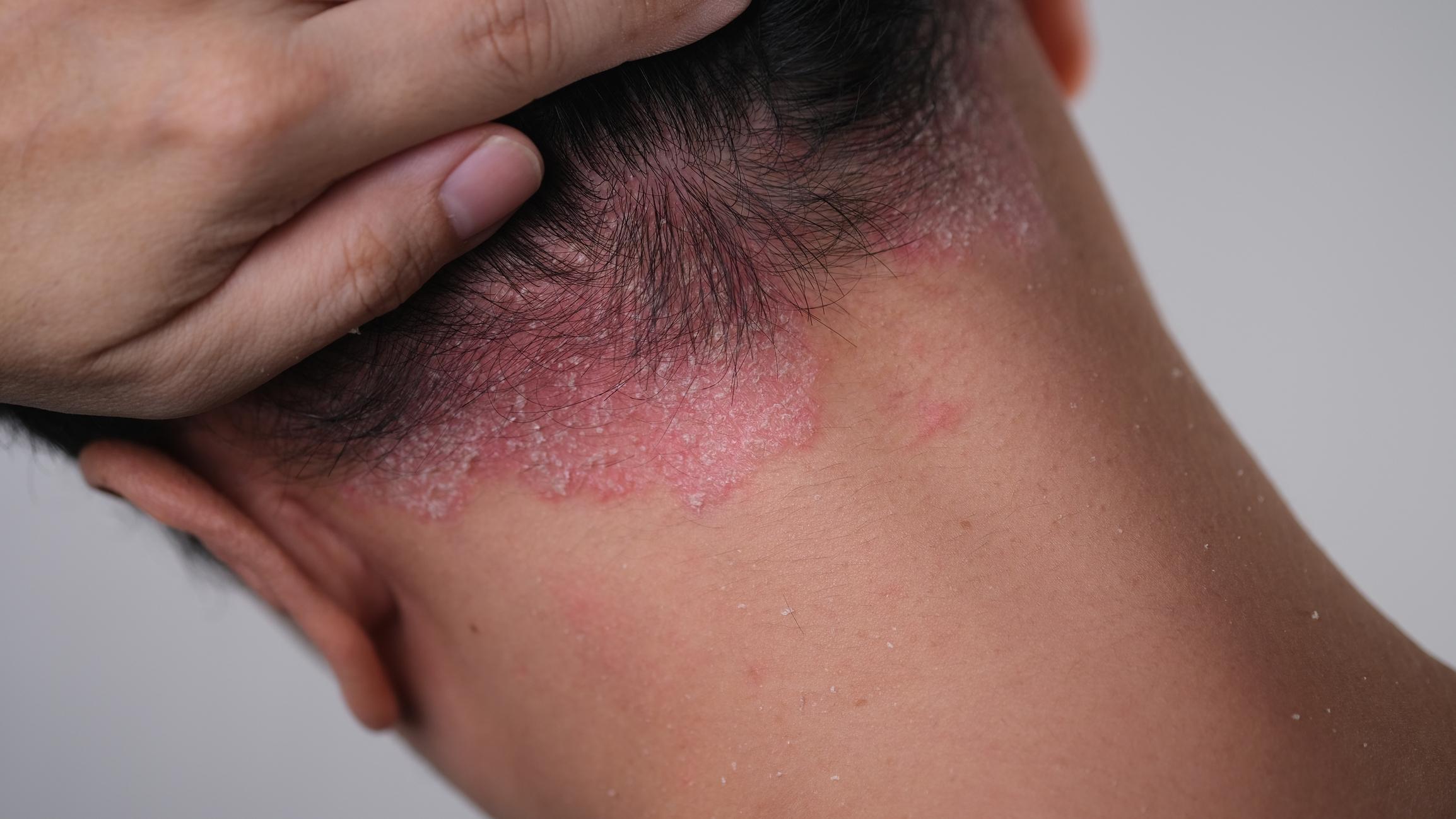On the occasion of the first World Day dedicated to Lewy body disease, Quelle Docteur spoke with Philippe de Linares, former caregiver and founder of the A2MCL association, about this little-known and yet very common pathology.

The second neurocognitive disease after Alzheimer’s disease, Lewy body disease (MCD) affects ten million people around the world and 200,000 in France, 2/3 of whom are nevertheless undiagnosed. This January 28 is the first World Day dedicated to Pathology, launched jointly by nine patient associations around the world, including theAssociation of Caregivers and Patients with Lewy Bodies (A2MCL). On this occasion, Fait Docteur spoke with its founder Philippe de Linares, who supported his wife suffering from Lewy body disease until the end.
Why Doctor: How did you come to found the A2MCL?
Philip of Linares: I had never heard of MCL before my wife was diagnosed, very late in life, after years of diagnostic wandering. One day, she suddenly fell into depression, without apparent cause. She first saw a psychiatrist, then a neurologist who, observing motor problems, diagnosed Parkinson’s disease. It is common: MCL is related to Parkinson’s if the first symptoms are motor or Alzheimer’s disease if they are cognitive, and doctors, rarely trained in the disease, and seeing patients with very different clinical pictures, can pass for a long time without the correct diagnosis. It was finally by consulting American and Canadian sites that I came across the symptoms of MCL, and I suggested to the neurologist that it could be this disease. The diagnosis, finally, was made. But we lost a lot of time: the first significant symptoms appeared in 2011, my wife was diagnosed in 2014 and she died in 2016. I discovered that the disease, which I thought was rare, is very common. I then sought to meet other affected families. Thanks to the Internet, I came into contact with people who accompanied or had accompanied a loved one with Lewy. We formed a group of caregivers, which became the A2MCL association.
To be diagnosed with MCL, you must suffer from cognitive disorders and at least one other symptom (motor, visual, behavioral disorders, etc.)
What are the symptoms of MCL? Why is it so difficult to diagnose?
The clinical symptoms are very different from one case to another, which makes the disease difficult to detect, especially since it does not have reliable biomarkers. There are cognitive disorders, concentration, vigilance, attention, with very large fluctuations: the patient can be concentrated, attentive, in great shape, and suddenly no longer understand anything, no longer know where he is. East. It is called the “fluctuation disease”. There are also sometimes motor disorders, similar to those of Parkinson’s (tremors, slightly stooped attitude, weakened voice, etc.). MCL can also manifest itself through hallucinations, particularly visual: the patient begins to see absurd things, such as a rabbit passing across his desk. And it is not a psychiatric illness like schizophrenia, so the patient, at the beginning of the illness, is aware of seeing something that he should not see. He knows that these hallucinations are a construct of the brain. Other signs can suggest MCL, such as severe anxiety, depression without cause or loss of sense of smell.
There is another cardinal symptom, characteristic of MCL to establish the diagnosis: REM sleep behavior disorders. The patient has very agitated dreams: he talks, he screams, he gets out of bed or even out of the apartment, he even answers questions… while he is sleeping. His dreams, which are often nightmares, are fueled by reality, but he does not have the muscular locks that normally prevent us from moving when we dream. One day, when she was very weak, I found my wife in the kitchen cleaning the refrigerator and, when she saw me, she took me for a threat and grabbed a knife…
To be diagnosed with MCL, you must suffer from cognitive impairment and at least one other of these symptoms.
What happens in the brain when you have MCL?
Lewy body, named after the German professor who discovered it, is an abnormal accumulation of a protein called alpha-synuclein. These Lewy bodies will block transmissions, communication between neurons. Parkinson’s disease is also caused by Lewy bodies, but these remain in the brain stem and only attack dopaminergic neurons, linked to motor disorders. With MCL, they spread throughout the brain (particularly the cortex) and, depending on the location (frontal lobe, occipital lobe, etc.) will cause different symptoms: language disorders, hallucinations, etc.
The most difficult thing for people with Lewy bodies is that they are overcome by terror, even when there is no reason.
What do people with Lewy bodies say they feel?
When I ask them what is the most difficult to live with, they almost always answer: “Fear, panic. Even when there is no reason, I am overcome by terror. » It’s an unfounded terror, but patients are, a bit like autistic people, so hypersensitive that a simple light that is too bright or an inappropriate word can trigger a feeling of panic, which will lead to behavioral problems and delusions. paranoid, aggressiveness…
Patients also suffer great frustration because they are actually very lucid. If we sometimes have the impression that they are lost in their world, we actually realize the next day that they are capable of reproducing facts, conversations that we had in front of them, about their hospitalization by example. This lucidity regarding the loss of their abilities and their autonomy is a source of great psychological suffering.
What can relatives do to support the sick person?
It’s difficult for caregivers because because of the fluctuations, you never know what will happen the next moment: the day before her death, my wife spoke to me as I speak to you now, while the two weeks before, apart from a few flashes of lucidity, we could almost not communicate, his condition being very advanced. My advice is to consider the MCL like the weather: when there are storms, you have to hunker down and hope for the sun, and when the weather is nice, you have to take advantage of it, communicate, do activities with the patient while anticipating the next rain. Caregivers must prepare for these fluctuations, for any possible future surprises that the illness may have in store. My wife, for example, suffered from Capgras syndrome, an identification disorder where the patient mistakes their loved one for a double: I could leave a room, come back a few seconds later, and she would ask me “Can you say where is my husband? “. It’s very confusing for loved ones, especially the first few times. Knowing the illness, being aware of what is happening, considerably reduces anxiety, both for the caregiver and the patient.
Are there things to avoid doing/saying, as with some Alzheimer’s patients?
Patients with Lewy bodies are fluctuating, anxious and very sensitive. You must therefore behave calmly, patiently and empathetically. A smile, a gesture can be enough to soothe them – I remember a doctor who took my wife’s hand and said “it’s going to be okay”, and she immediately felt better. It is essential to consider them as what they are, sick but very lucid, and above all not to infantilize them.
Knowing the illness, being aware of what is happening, considerably reduces anxiety, for the caregiver and the patient.
To what extent are existing – non-curative – treatments effective?
Non-drug treatments (speech therapy, physiotherapy, psychologist, etc.) make it possible to maintain the quality of life for as long as possible. There are also medications that are effective in many cases to reduce certain symptoms, such as Rivastigmine or Donepezil. But as we recently realized that they were ineffective against Alzheimer’s, and that MCL was not considered as a disease in its own right but as related to Alzheimer’s, they have no longer been reimbursed by Social Security since 2018. Generally speaking, treatment must be tailor-made, depending on the patient. And the fluctuations of the disease don’t help: when a patient gets better, we don’t always know if it’s due to a temporary clearing up or to the medications, and vice versa when they’re feeling bad.
Do we know if lifestyle or heredity can increase the risk of developing the disease?
Like all neurodegenerative diseases, little is known about the causes. Some point the finger at lifestyle, viruses or environmental factors – a correlation has already been observed, for example, between plant protection products used by farmers and Parkinson’s disease which hits them hard.
Diagnostic wandering, inappropriate care… It is urgent to move away from this terminology of “related” Alzheimer’s or Parkinson’s disease which assigns patients with Lewy bodies to be what they are not.
Unrecognized disease, little taught to caregivers, poorly diagnosed… What are the consequences of this “disinterest” on the part of public authorities?
First, a diagnostic wandering which is a source of great suffering: when patients and their caregivers learn that it is MCL, they say to themselves “Finally! “. Then, a care pathway unsuitable for MCL: since they are related to Alzheimer’s, the patients are for example interned in specialized Alzheimer’s units, protected units where they will be locked up and infantilized, which is not at all suitable for them. Even certain medications are unsuitable, such as first generation neuroleptics, sometimes prescribed to patients with Lewy bodies even though they can have serious side effects, sometimes leading to death.
What do you hope to achieve with this first global day dedicated to MCL?
We are awaiting awareness from health authorities, caregivers and the general public. We must put in place appropriate training to better support patients, restore reimbursement for medications specific to MCL, create a real diagnostic pathway with a memory center dedicated to the disease in each department (as there is for Alzheimer’s). )… It is urgent to realize that MCL is very common and very specific, to move away from this “related” terminology which assigns patients to be what they are not.
















